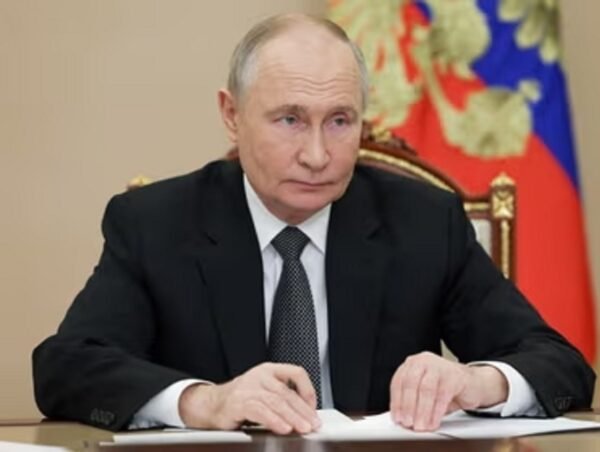Putin okays broader use of nuclear weapons: Russia updates nuclear doctrine day after US allows Ukraine to use their missiles
 On November 19, 2024, Russian President Vladimir Putin officially approved an updated nuclear doctrine that broadens the conditions under which Russia might consider using nuclear weapons. This decision coincides with the 1,000th day of the ongoing war in Ukraine and follows the recent U.S. authorization allowing Ukraine to use long-range missiles against targets within Russia.
On November 19, 2024, Russian President Vladimir Putin officially approved an updated nuclear doctrine that broadens the conditions under which Russia might consider using nuclear weapons. This decision coincides with the 1,000th day of the ongoing war in Ukraine and follows the recent U.S. authorization allowing Ukraine to use long-range missiles against targets within Russia.
Putin Updates Nuclear Doctrine: On November 19, 2024, Russian President Vladimir Putin approved a significant update to Russia’s nuclear doctrine, which lowers the threshold for the potential use of nuclear weapons. This decision comes just after the U.S. allowed Ukraine to use long-range missiles against targets within Russia, a move that has heightened tensions between Moscow and Washington.
Key Changes in Doctrine: The revised doctrine states that any aggression against Russia by a non-nuclear state, supported by a nuclear power, will be considered a collective assault on Russia. This includes scenarios where conventional attacks are backed by nuclear-armed allies, thereby expanding the criteria under which Russia might consider using nuclear weapons.
Kremlin’s Justification: Kremlin spokesperson Dmitry Peskov emphasized that the update was necessary in light of U.S. military support for Ukraine and asserted that such actions could provoke a nuclear response from Russia. He reiterated that while nuclear weapons are viewed as a last resort, their use is now more explicitly linked to perceived threats from Western nations.
Context of U.S. Policy Shift: The U.S. decision to permit Ukraine to strike deep into Russian territory with American-made missiles, including the ATACMS, has been characterized by Moscow as reckless and potentially escalatory. Putin’s update is seen as a direct response to this shift in U.S. policy and reflects growing concerns over Western involvement in the Ukraine conflict.
Implications for Global Security: This development marks a notable escalation in nuclear posturing from Russia and raises alarms about the potential for miscalculation or unintended escalation in the conflict, reminiscent of Cold War tensions. The situation is being closely monitored as it unfolds, with analysts warning of the increased risk of nuclear confrontation.
